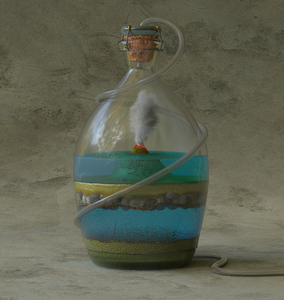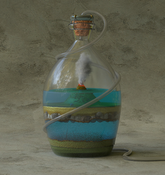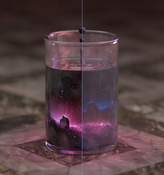Information
- Publication Type: Journal Paper with Conference Talk
- Workgroup(s)/Project(s):
- Date: June 2020
- Journal: Computer Graphics Forum
- Volume: 39
- Open Access: yes
- Number: 4
- Location: London, UK
- Lecturer: Karoly Zsolnai-Fehér
- ISSN: 1467-8659
- Event: Eurographics Symposium on Rendering 2020
- DOI: 10.1111/cgf.14057
- Call for Papers: Call for Paper
- Pages: 14
- Conference date: 29. June 2020 – 3. July 2020
- Pages: 107 – 120
- Keywords: neural rendering, neural networks, photorealistic rendering, photorealistic material editing
Abstract
Creating photorealistic materials for light transport algorithms requires carefully fine-tuning a set of material properties to achieve a desired artistic effect. This is typically a lengthy process that involves a trained artist with specialized knowledge. In this work, we present a technique that aims to empower novice and intermediate-level users to synthesize high-quality photorealistic materials by only requiring basic image processing knowledge. In the proposed workflow, the user starts with an input image and applies a few intuitive transforms (e.g., colorization, image inpainting) within a 2D image editor of their choice, and in the next step, our technique produces a photorealistic result that approximates this target image. Our method combines the advantages of a neural network-augmented optimizer and an encoder neural network to produce high-quality output results within 30 seconds. We also demonstrate that it is resilient against poorly-edited target images and propose a simple extension to predict image sequences with a strict time budget of 1-2 seconds per image.Video: https://www.youtube.com/watch?v=8eNHEaxsj18
Additional Files and Images
Weblinks
- Source code
- Supplementary video
- Entry in reposiTUm (TU Wien Publication Database)
- DOI: 10.1111/cgf.14057
BibTeX
@article{zsolnaifeher-2020-pme,
title = "Photorealistic Material Editing Through Direct Image
Manipulation",
author = "Karoly Zsolnai-Feh\'{e}r and Peter Wonka and Michael Wimmer",
year = "2020",
abstract = "Creating photorealistic materials for light transport
algorithms requires carefully fine-tuning a set of material
properties to achieve a desired artistic effect. This is
typically a lengthy process that involves a trained artist
with specialized knowledge. In this work, we present a
technique that aims to empower novice and intermediate-level
users to synthesize high-quality photorealistic materials by
only requiring basic image processing knowledge. In the
proposed workflow, the user starts with an input image and
applies a few intuitive transforms (e.g., colorization,
image inpainting) within a 2D image editor of their choice,
and in the next step, our technique produces a
photorealistic result that approximates this target image.
Our method combines the advantages of a neural
network-augmented optimizer and an encoder neural network to
produce high-quality output results within 30 seconds. We
also demonstrate that it is resilient against poorly-edited
target images and propose a simple extension to predict
image sequences with a strict time budget of 1-2 seconds per
image. Video: https://www.youtube.com/watch?v=8eNHEaxsj18",
month = jun,
journal = "Computer Graphics Forum",
volume = "39",
number = "4",
issn = "1467-8659",
doi = "10.1111/cgf.14057",
pages = "14",
pages = "107--120",
keywords = "neural rendering, neural networks, photorealistic rendering,
photorealistic material editing",
URL = "https://www.cg.tuwien.ac.at/research/publications/2020/zsolnaifeher-2020-pme/",
}


 paper
paper




